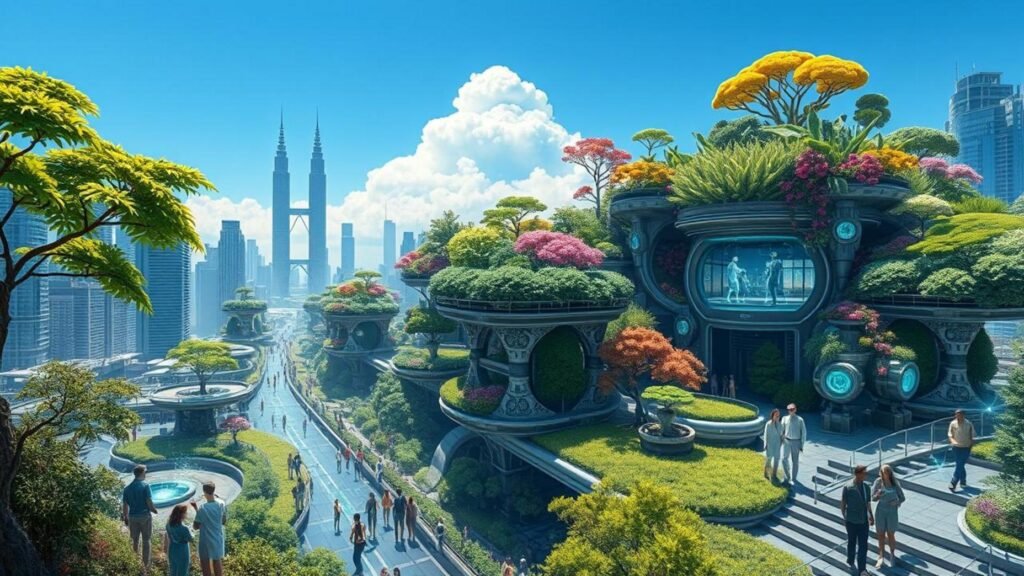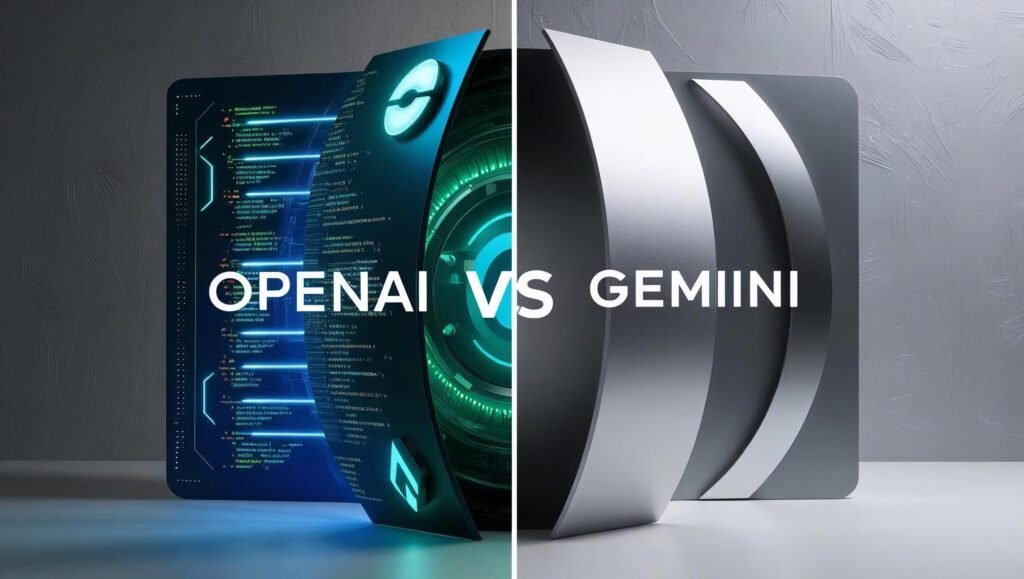Understanding Living Intelligence: An Overview of AI and Biology Convergence

The convergence of artificial intelligence (AI) and biological systems is paving the way for what is often termed as “living intelligence AI”. This innovative intersection not only enhances our understanding of life but also fosters the creation of adaptive bio-AI systems that can respond in real-time to complex challenges. Living intelligence encompasses the integration of AI algorithms with biological processes to generate solutions that mimic or augment natural intelligence.
One prominent area of study is the development of bio-inspired algorithms, which draw on the mechanisms observed in nature to solve problems. For example, researchers have utilized swarm intelligence, modeled after ant or bee colonies, to inform algorithms that optimize logistics and resource management. Such applications are not merely theoretical; they have real-world implications in areas like crisis response and environmental management [Source: ScienceDirect].
Moreover, the synthesis of AI and biology allows for the formation of bio-AI systems that adapt their behaviors based on their environment. Incorporating machine learning techniques into biological research has begun to demonstrate significant advances, such as in personalized medicine where AI models analyze patient data to tailor specific treatment plans that evolve with the patient’s changing condition [Source: Nature].
As we look towards 2025, the potential for living intelligence extends to diverse fields. From enhancing agricultural crop yields through improved pest management strategies driven by AI analysis, to enabling smarter healthcare systems that can preemptively address patient care needs, the applications are vast. The ongoing research into this synergy not only highlights the adaptability of AI but also reflects a deeper understanding of life itself.
For more insights on how AI technology is revolutionizing various fields, consider exploring our piece on advanced AI technology in user experiences or check out how AI tools are transforming productivity for solopreneurs. The future indeed looks promising as we continue to bridge the gap between artificial and living intelligence.
The Rise of Adaptive Bio-AI Systems: Transforming Healthcare and Beyond
Adaptive bio-AI systems are charting a new course in healthcare, leveraging the convergence of artificial intelligence and biological data to create more effective, personalized medical care. By continuously learning and adapting from a multitude of biological inputs, these systems are poised to revolutionize personalized medicine, enhance diagnostics, and tailor treatment plans with unprecedented precision.
Personalized Medicine
In the realm of personalized medicine, adaptive bio-AI systems utilize vast amounts of genetic, clinical, and lifestyle data to devise individualized treatment strategies. As noted by sources such as Nature Biotechnology, these systems can analyze a patient’s unique genomic makeup alongside environmental factors, leading to therapies that are not only more effective but also minimize adverse effects. This approach is particularly beneficial for diseases like cancer, where treatments can differ drastically based on genetic markers.
Enhancing Diagnostics
The role of adaptive bio-AI systems in diagnostics is equally transformative. Through machine learning algorithms, these systems can interpret complex medical images or genetic tests with high accuracy, often outpacing traditional diagnostic methods. For instance, research highlighted by Health Affairs indicates that AI-enhanced diagnostics can lead to earlier detection of diseases, which is critical for conditions such as Alzheimer’s and various cancers.
Tailored Treatment Plans
Perhaps one of the most compelling advantages of adaptive bio-AI systems is their ability to continuously refine treatment plans based on real-time feedback. By monitoring patient responses and outcomes, these systems can adjust dosages or even suggest alternative therapies dynamically. As outlined in a study published by Mary Ann Liebert, Inc., treatments driven by adaptive learning systems not only enhance patient satisfaction but also improve overall health outcomes.
The ongoing advancements in adaptive bio-AI systems indicate a significant shift towards a more responsive and comprehensive healthcare model. As these technologies evolve, their integration into everyday medical practice could pave the way for significant breakthroughs in disease management and health maintenance. For more insights into AI’s transformative impact on various fields, explore our article on Unlocking the Power of Artificial Intelligence.
Living Intelligence AI in Environmental Sustainability: Innovations and Challenges
The intersection of living intelligence AI and environmental sustainability is expected to yield significant advancements by 2025, showcasing innovative applications that tackle pressing ecological challenges. These adaptive bio-AI systems harness biological principles and AI technologies to develop solutions that are not only efficient but also sustainable.
Innovative Applications of Living Intelligence AI
One of the most promising applications of living intelligence AI lies in agriculture. By integrating AI with biological insights, systems such as precision farming can be developed to optimize resource use. For instance, AI algorithms analyze data from sensors placed in fields to monitor soil conditions, moisture levels, and crop health, allowing farmers to make data-driven decisions that reduce waste and enhance yield. This approach has the potential to revolutionize food production while conserving essential resources.
Furthermore, living intelligence AI is instrumental in biodiversity conservation. AI can analyze complex ecological data to model ecosystems and predict how environmental changes will affect various species. These systems can offer insights into how to maintain biodiversity and prioritize conservation efforts, effectively acting as predictive tools that guide decision-making for environmental policymakers.
Challenges Facing Adaptive Bio-AI Systems
Despite these innovations, the integration of living intelligence AI into sustainability initiatives does not come without its challenges. One primary concern is the issue of data privacy and security. As organizations aggregate vast amounts of biological and ecological data, they must ensure that this information is protected against breaches and misuse.
Additionally, there is the challenge of ensuring that AI systems are transparent and explainable. As outlined by experts, the complexity of AI-driven models can lead to difficulties in understanding their decision-making processes. There’s a pressing need for explainable AI (XAI) solutions that can clarify how these systems operate, particularly when it comes to high-stakes environmental decisions.
Moreover, the reliance on technology presents risks in terms of equity and access. In many regions, especially in developing countries, there may be insufficient infrastructure to support advanced AI systems. Bridging the technology gap will require concerted efforts from both public and private sectors to ensure that all communities can benefit from these innovations.
In closing, while living intelligence AI promises exciting innovations in environmental sustainability, addressing the accompanying challenges is crucial for effective implementations. As we move toward 2025, ongoing collaboration between researchers, policymakers, and technologists will be essential in leveraging these adaptive bio-AI systems for a sustainable future.
Practical Applications of Living Intelligence: Case Studies and Real-World Impact
The integration of living intelligence AI into various sectors is reshaping our approach to problem-solving, enhancing productivity, and driving significant change. As we explore these real-world applications, several case studies exemplify how adaptive bio-AI systems are not only theoretical concepts but functional technologies making meaningful impacts today.
Healthcare Revolution
One of the most compelling case studies is in the field of healthcare, where living intelligence AI has begun to revolutionize patient care. For instance, IBM Watson has demonstrated its ability to analyze vast amounts of medical data to assist in diagnosing diseases like cancer. By utilizing adaptive bio-AI systems, Watson can recommend personalized treatment plans based on a patient’s unique genetic makeup and histopathological data. Research conducted by National Institutes of Health indicates that such AI systems can enhance diagnostic accuracy and improve treatment outcomes, showcasing the transformative potential of integrating AI and biological data.
Agricultural Advances
In agriculture, living intelligence AI systems are helping farmers optimize crop yields while minimizing resource use. A prime example is the partnership between Microsoft and sustainable agriculture groups, which utilizes AI-powered drones and sensor technologies to monitor crop health. These systems can predict pest invasions and soil depletion, allowing farmers to respond adaptively. The benefits are substantial, with studies indicating that the implementation of these technologies can increase crop production by up to 20% while significantly reducing pesticide use (Source: ScienceDirect).
Environmental Monitoring
Adaptive bio-AI systems are also making strides in environmental monitoring. For example, researchers at Nature have developed machine learning models that analyze satellite imagery to track deforestation and habitat loss. This technology enables more timely interventions, aiding conservation efforts and supporting biodiversity. By leveraging living intelligence AI, organizations can make data-driven decisions that effectively address environmental challenges.
Smart Manufacturing
The manufacturing sector is another arena witnessing the integration of living intelligence. Companies like Siemens are incorporating adaptive AI systems in their production lines to predict equipment failures before they occur. Utilizing predictive maintenance led by AI, these systems can ensure increased efficiency and reduced downtime. Research from Proceedings of the National Academy of Sciences highlights how such predictive capabilities can lead to operational cost savings of nearly 15%, demonstrating the profound impact of AI-enhanced manufacturing processes.
Conclusion
The case studies presented reveal that the adoption of living intelligence AI is not merely a trend but a significant advancement across diverse fields. Its capacity to learn and adapt from biological inputs illustrates a future where technology and nature coexist to address some of the world’s most pressing challenges. As the capabilities of these adaptive bio-AI systems continue to evolve, they promise to unlock new potentials that could transform industries comprehensively.
Future Trends in Living Intelligence: Preparing for an Adaptive Bio-AI Landscape
As we look ahead to 2025, the convergence of artificial intelligence (AI) and biological systems is set to redefine our understanding of living intelligence. Anticipated developments in adaptive bio-AI systems promise to create a new paradigm in various fields, from healthcare to environmental sustainability. Here, we explore some of the significant trends that will likely shape this evolving landscape.
The Rise of Biologically-Inspired Algorithms
One of the most promising trends in living intelligence is the emergence of biologically-inspired algorithms. By mimicking the processes found in nature, such as evolutionary algorithms and neural network architectures based on brain functionality, these new AI systems will enhance efficiency and adaptability. For instance, click here to see how AI models are drawing from principles of biology to tackle complex problems.
Enhanced Decision-Making Through Biofeedback
Another critical trend involves biofeedback mechanisms that integrate real-time biological data to improve decision-making processes. Industries such as healthcare will benefit significantly as adaptive bio-AI systems analyze patient data—ranging from biometric readings to genetic makeup—allowing for personalized treatment plans. This approach can lead to more accurate diagnoses and targeted therapies, ultimately improving patient outcomes.
Responsible AI Development and Ethical Guidelines
As living intelligence continues to evolve, so does the necessity for establishing robust ethical frameworks and ensuring responsible AI use. The integration of AI with biological data raises numerous ethical questions, including privacy concerns and data sovereignty. Stakeholders from academia, industry, and regulatory bodies must collaborate to develop guidelines that balance innovation with ethical responsibility, as highlighted in the conversation surrounding AI and data-driven education.
Preparing for an Evolving Job Market
The advent of adaptive bio-AI systems will undoubtedly disrupt the job market, creating new roles while rendering some traditional positions obsolete. Workers will need to adapt by acquiring hybrid skill sets that fuse biotechnology knowledge with AI understanding. Educational institutions and businesses should focus on training programs that prepare the workforce for this shift, emphasizing skills in both biotechnology and digital technologies. For more insights, refer to our guide on essential skills for IT professionals in 2025.
In conclusion, as we embrace the advances in living intelligence, proactive steps must be taken to harness the potential of adaptive bio-AI systems while addressing the ethical and practical implications they bring. By staying informed and engaged, society can effectively prepare for an increasingly intertwined future of AI and biology.
Sources
- Digihetu – AI Tools for Solopreneurs: Top 5 Productivity Apps to Boost Success
- Digihetu – Gemini AI vs GPT-4: A Comparison
- Digihetu – OpenAI Revolutionizing Education Through Data-Driven Innovation
- Digihetu – XAI Grok: Revolutionizing User Experience Through Advanced AI Technology
- Health Affairs – The Role of AI in Personalized Medicine
- National Institutes of Health – AI in Healthcare
- Mary Ann Liebert, Inc. – Adaptive AI Systems in Medicine
- Nature – Machine Learning in Environmental Monitoring
- ScienceDirect – AI and Sustainable Agriculture
- Proceedings of the National Academy of Sciences – Predictive Maintenance in Manufacturing
- Nature Biotechnology – Impact of AI on Personalized Treatment


